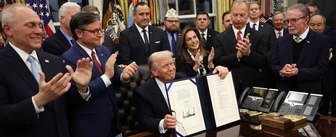Only 21% of Americans think Trump’s tariffs will help the US economy
As the White House copes with a number of major actions – and a few surprises – the latest Economist/YouGov Poll finds that Americans are not at all sure that the President is taking the right steps when it comes to relations with other countries. Many are worried about the impact of the steel and aluminum tariffs just put in place by the President. There is a lot of support for the President’s acceptance of a meeting with North Korean leader Kim Jong-un, but there also are relatively low expectations for what the meeting can accomplish.
The President lost several senior officials recently. This poll was conducted after the head of the National Economic Council, Gary Cohn, resigned when the tariffs were imposed, citing his disagreement with the President on this issue. But it was completed before the firing of Secretary of State Rex Tillerson. Public opinion about both of these men is divided; Cohn and Tillerson receive just as many unfavorable as favorable assessments in this poll.
These changes in staffing underscore public concern about the President’s decision-making and staff management, something also found in last week’s poll: 78% this week say Mr. Trump mostly speaks without thinking, and by 53% to 17% Americans say that he mostly ignores his advisers. As for his judgment, just 34% say the President mostly has good judgment, 50% think he mostly has bad judgment.
Cohn’s departure over the imposition of tariffs comes at a time when Americans are not at all sure that protectionism is the right approach. This set of tariffs (25% on steel, 10% on aluminum) is narrowly opposed by the public – 37% oppose them, 33% favor them – but the bigger fear is that they will hurt the US economy. With more than seven in ten Americans expecting that other countries would retaliate, any resulting trade war is seen overwhelmingly as hurting the American economy.
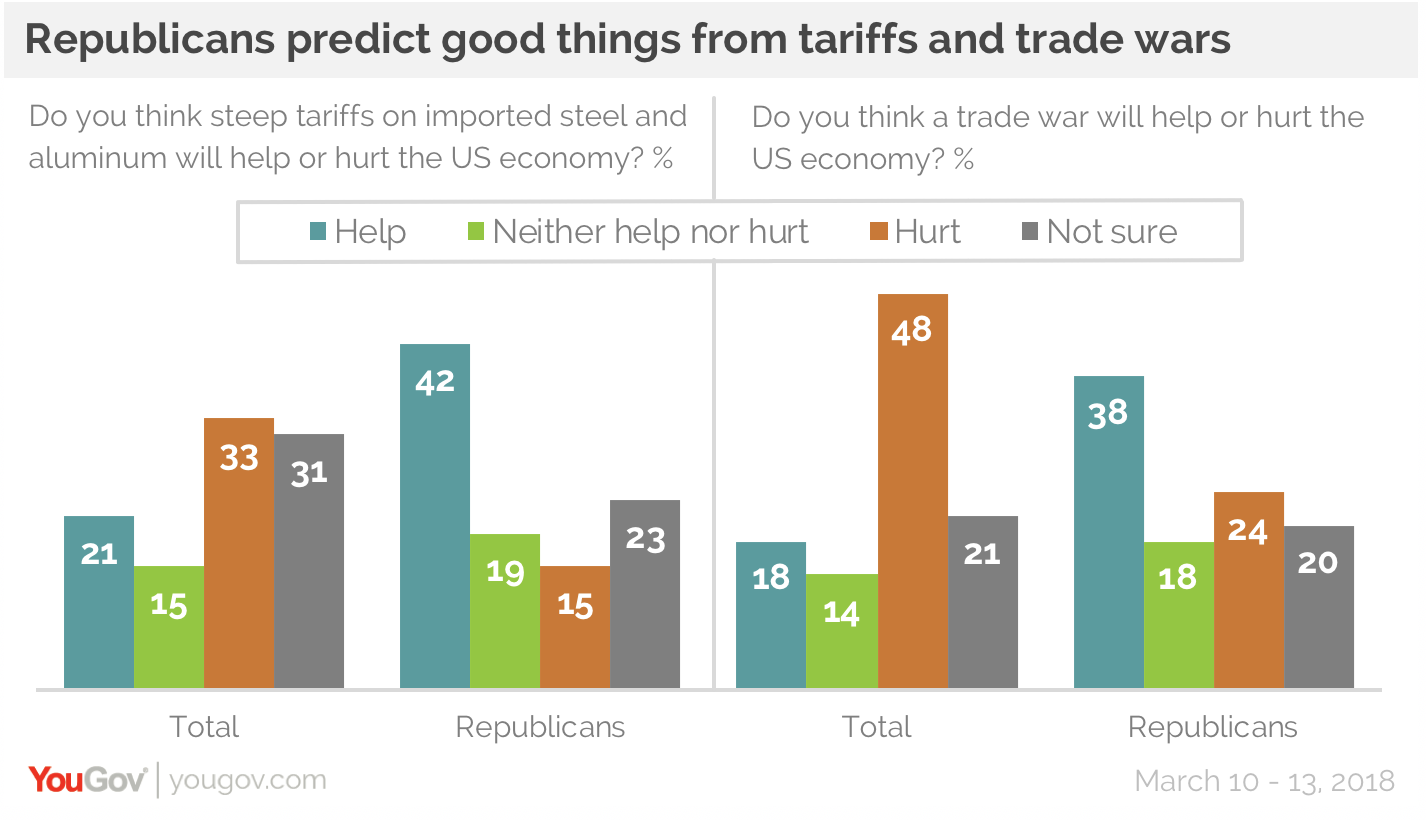
As for whether or not the US would win a trade war (something Mr. Trump believes it would), Americans are divided: 29% think it would, 32% think it would not. More – 39% – are worried it could hurt the US more than the rest of the world. One in four say the rest of the world would feel more of the impact.
In principle, the public thinks tariffs, if applied at all, should be placed on countries that engage in unfair trade practices. Republicans are as likely as Democrats and independents to believe this. Americans approve of the exemptions given to Canada and Mexico. While Republicans agree with those exemptions, nearly two in three approve of the tariffs, and 42% to 15% say they will help, not hurt, the US economy. By 38% to 24%, Republicans believe even a trade war could be helpful to the economy.
Most Republicans, like the country overall, expect retaliation for the US-imposed tariffs. But they overwhelmingly think that will result in victory for the US.
Cohn’s resignation gets a partisan assessment: Democrats say his resignation over tariffs was appropriate, and that any resignation over rejection of advice by a President is appropriate. Republicans disagree.
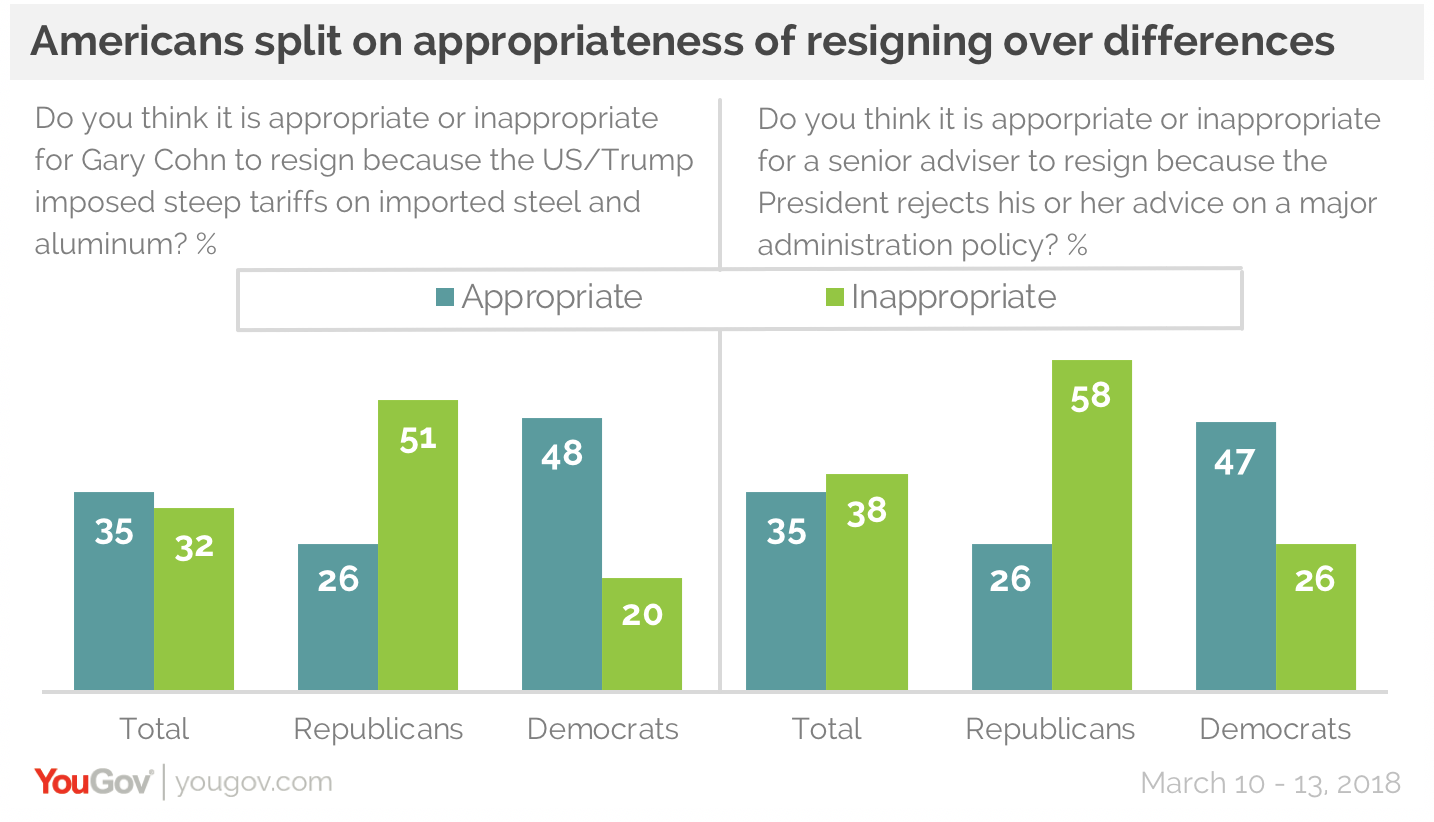
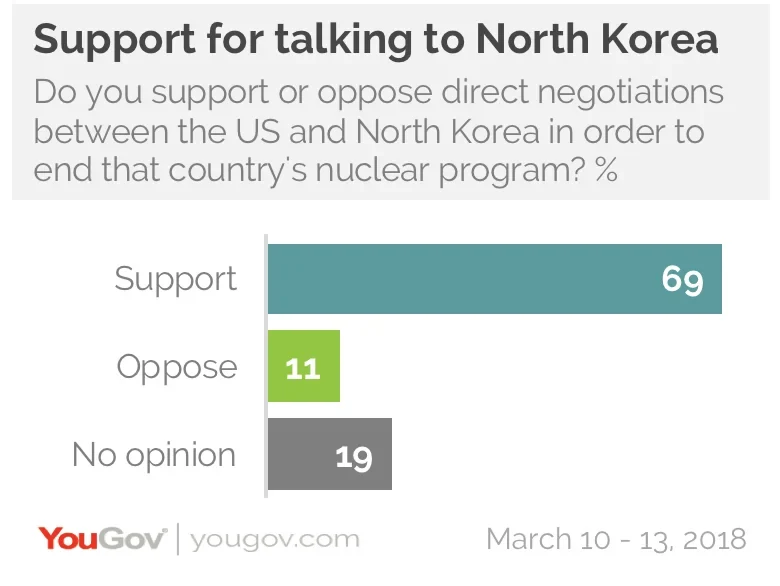
The President’s decision to meet with Kim Jong-un caused yet another public disagreement between Trump and one of a senior adviser – in this case, Tillerson. Americans overwhelmingly support the meeting with Kim, but they don’t have a lot of hope about what it might accomplish. More than six times as many support the negotiations as oppose them, and by more than four to one. Americans say Donald Trump should have accepted the invitation to meet with the North Korean leader, as he did.
Democrats and Republicans agree that the negotiations should take place with North Korea, and that the President should meet with Kim. Republicans favor the meeting by nearly ten to one, Democrats by just over two to one.
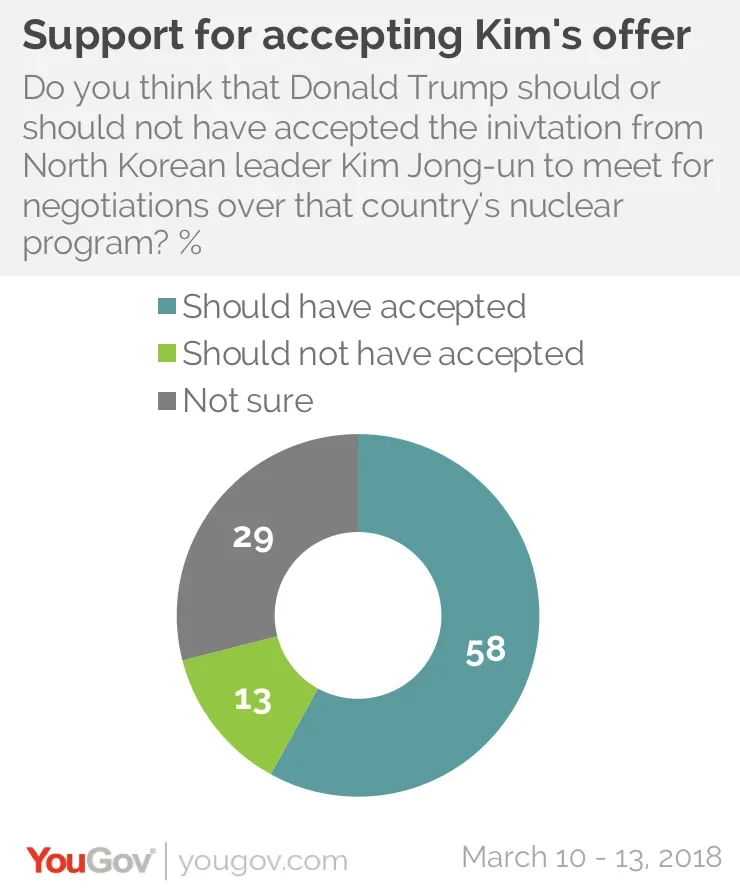
But when it comes to what the meeting will accomplish, expectations are very low. Even though three times as many Americans think the President is a good negotiator as say that about the North Korean leader, relatively few expect the meeting will change the state of relations between the two countries. After all, six out of ten view North Korea as an enemy. And just about as many describe Kim Jong-un as a strong leader as believe that about the President.
More say that the meeting is mainly for show: only a third think it is an important step towards peace between the two countries. Republicans are more optimistic, and half of them say it is a step towards peace.
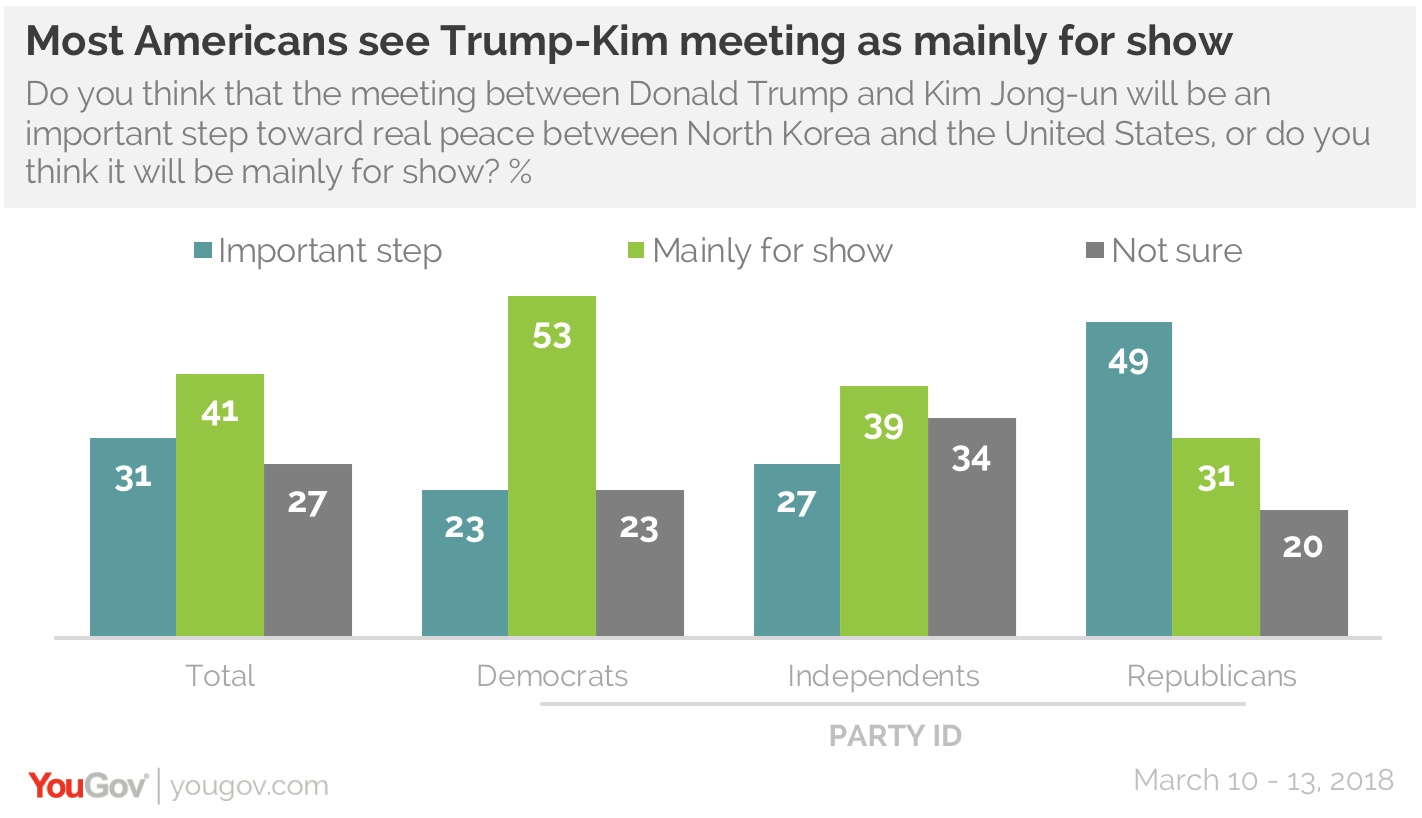
Read the latest topline and table results here
Photo: Getty





